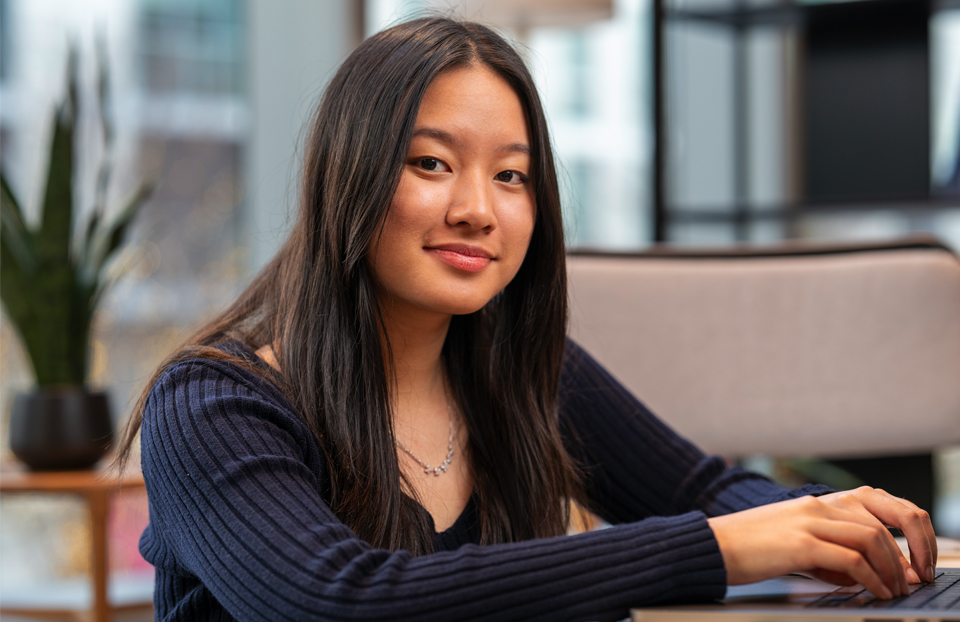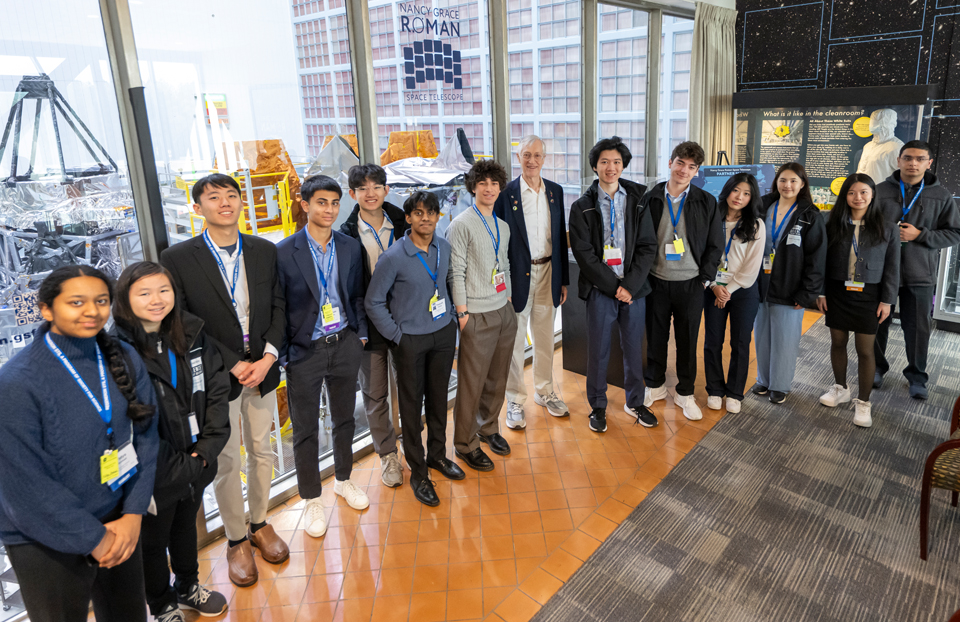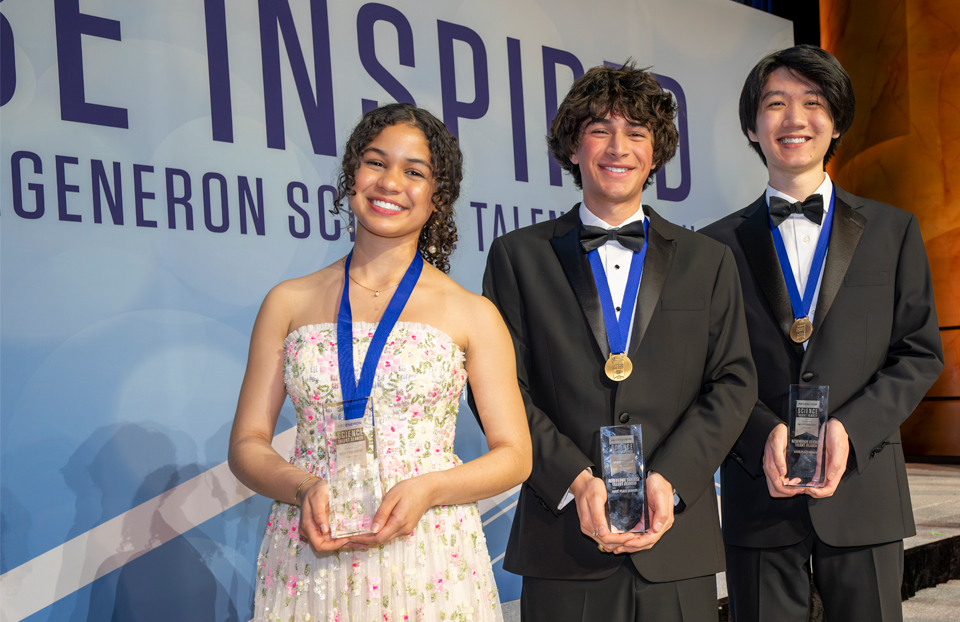Five Questions with Michelle Wei, 3rd Place Winner of the 2024 Regeneron Science Talent Search

This week, as we welcome the 2025 class of Regeneron Science Talent Search finalists to the nation’s capital for Finals Week, we’re also catching up with a few of last year’s top winners.
Michelle Wei, from Saratoga, Calif., placed third in the 2024 competition with her project, Solving Second-Order Cone Programs Deterministically in Matrix Multiplication Time. It earned her a $150,000 award. No big deal.
These days, you can find Michelle walking the halls of MIT in Cambridge, Mass., where she is pursuing her undergraduate degree and has continued her passion for research at the MIT Julia Lab. She is working on optimizing how AI models perform on GPUs. These are computers that help power AI and machine learning. Her goal is to make these models faster and more efficient, which could reduce the energy they consume—a crucial step in addressing the environmental impact of rapidly growing AI technology.
Michelle explained to us the many applications of her work. Second-order cone programming—a mathematical technique that helps make complex computations faster—could improve everything from company supply chains to airline flight schedules. But the broader impact on climate change is most meaningful to Michelle because it could help make AI more sustainable.
As AI rapidly evolves, Michelle knows it is becoming increasingly crucial to address its environmental impact. “There’s a statistic that by 2026 or 2027, we could be using as much energy for machine learning and AI as the entire country of Argentina,” she says. “A challenge that fascinates me—and ties into my STS project—is reducing AI’s massive computational demands.”
By developing more resource-efficient models through advanced optimization methods, Michelle hopes that we can lessen AI’s footprint on the planet.
“With climate change being one of the world’s most urgent problems, I think it’s essential to find ways to reduce resource consumption. My hope is that my work can contribute to that.”
Let’s hear more from Michelle below!
Which sci-fi advancement do you wish we had by now?
I wish we had the ability to pause time. I could finish my problem sets, explore a Wikipedia rabbit hole, or take a long walk in perfect peace. On a bigger scale, having those extra moments to think, reflect and collaborate could help society focus on big problems more thoughtfully and effectively.
Which scientist—alive or deceased—would you want to solve scientific mysteries with, and why?
I’d love to collaborate with Fei-Fei Li to expand the horizons of what AI can do. I still remember being 10 years old at the 2017 Harker Research Symposium, watching her keynote. At the time, I was mostly captivated by the visuals, but now that I truly understand her work, especially her role in modern computer vision—I’m even more inspired by her brilliance. As a fellow woman in STEM, I also admire her commitment to increasing diversity in AI. I strongly believe diverse perspectives are essential for shaping AI that serves everyone, and I hope to follow in her footsteps.
What advice would you give to inspire the next generation of scientists?
My biggest breakthroughs have come when I took a leap of faith and believed in myself—even when I felt like giving up. That belief has carried me through many challenges in my journey as a scientist. Don’t quit before you even try; you never know what discoveries you might miss. Set ambitious goals and never underestimate the impact you can make!
What was your most memorable experience at STS?
One of my favorite memories was karaoke in the finalist lounge. Over the course of the week, I got to know the other finalists so well, and bonding over our favorite childhood songs—just being silly together—was definitely a core memory.”
What do you hope your legacy will be in science?
“No matter what path I take, I want to be remembered for using science to improve lives and tackle some of the world’s most pressing problems.”
To learn more about these incredible students and their hard work, join us on Sunday, March 9, at the Conrad Hotel from 1:30 p.m. to 3:30 p.m. for the Public Exhibition of Projects during STS Finals Week. More information about the students can also be found here.


